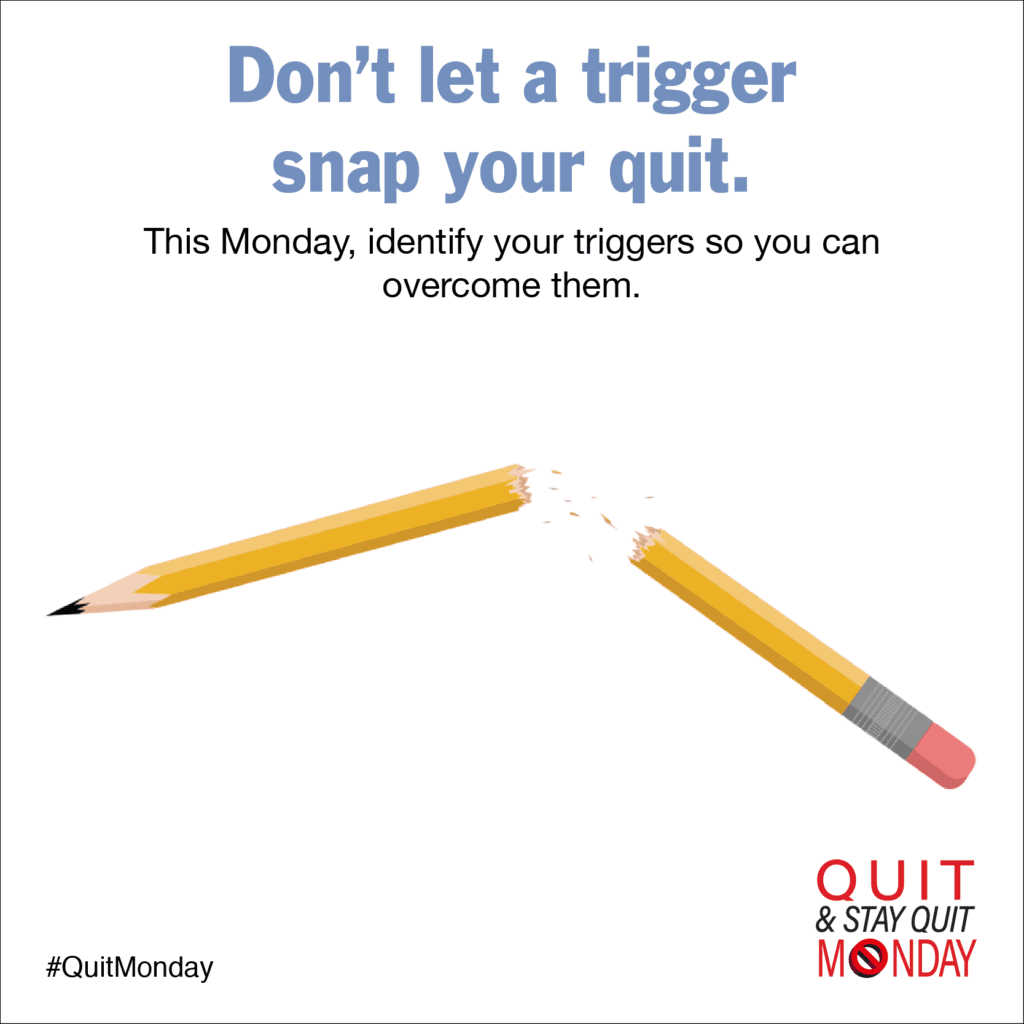Identify Your Smoking Triggers to Stay Quit
What Are Smoking Triggers?
Smoking triggers are those feelings you get throughout the day that make you want smoke. Triggers fall into four general categories: emotional (stress, anxiety, bliss); pattern (morning cup of coffee, driving, drinking alcohol); social (night out with friends); and withdrawal (smelling a cigarette, touching a lighter).
Understanding triggers and knowing how to handle them when they arise are two essential pieces of a successful quit plan. This Monday, learn how to identify (and conquer) your triggers with some simple techniques and practices that are easy to apply to your day-to-day routine.
Emotional Triggers
An emotional trigger links cigarette-smoking with feeling good or relief from sadness, stress, or anxiety. Associating positive emotions with cigarette smoking makes emotional triggers powerful and difficult to break.
To overcome emotional triggers, try talking with a quit buddy or family member, listen to calming music, or take some slow, calming deep breaths until the cravings subside.
Pattern Triggers
A pattern trigger is an activity that you associate or connect with smoking. Some examples of pattern triggers are talking on the phone, drinking alcohol, driving, drinking coffee, taking a work break, or after dinner.
To overcome pattern triggers, try finding a replacement activity for your hands/mouth such as chewing gum, sucking on a candy, or squeezing a stress ball. You can also try changing your routine so it’s less conducive to cigarette smoking, like brushing your teeth immediately after dinner or drinking your coffee at a different time of day.
Social Triggers
A social trigger is a situation that involves other people or the public. Common social triggers include going to a bar, party, concert, or other social event. Seeing someone else smoke or being with a friend who smokes can also lead to an urge to smoke.
To overcome social triggers, once you make the decision to quit, you must try to avoid social situations and places where people are smoking. Let your friends know of your intentions, and ask them to not smoke around you if possible. It may feel uncomfortable at first, but over time it will get easier.
Withdrawal Triggers
A withdrawal trigger occurs in people who are long-time smokers and whose bodies are accustomed to regular doses of nicotine. Common withdrawal triggers include smelling cigarette smoke, touching a cigarette, pack of cigarettes, lighter, or matches, and needing to have something in your hand or mouth.
To overcome withdrawal triggers, the main thing you want to do is distract yourself and take your mind off the craving. Text a buddy, play a game on your phone, try some deep breathing. If withdrawals are becoming troublesome, contact your doctor to see if nicotine replacement therapy (NRT) is right for you.
This Monday, make the commitment to get to know your triggers.
